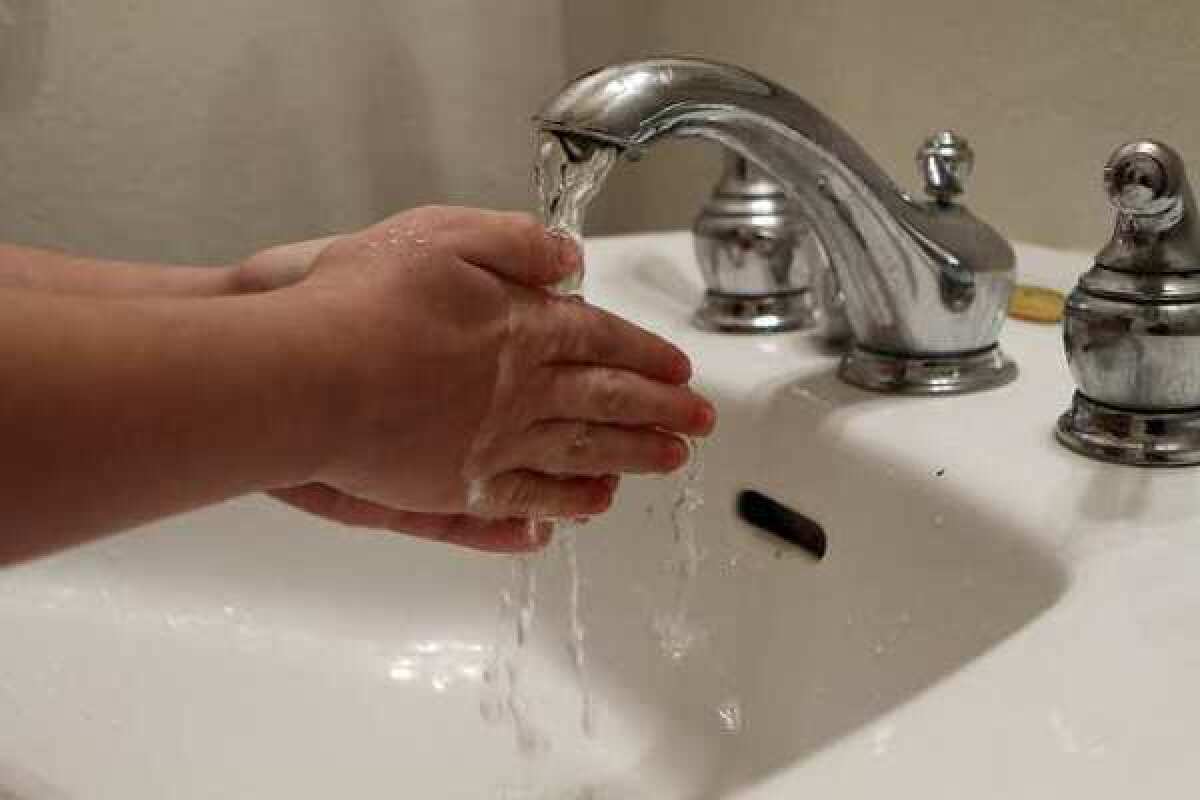Is triclosan dangerous? Yes, study finds -- in mice, fish

Presumably, when people buy antibacterial soap, the idea is to kill bad germs and promote health. But over the years, scientists and public health advocates have worried that triclosan -- a common chemical in antibacterial soap -- may actually do more harm than good.
The latest warnings come from a team of researchers who ran a series of tests that showed that triclosan hindered muscle performance in isolated cells and in animals. Writing Monday in the Proceedings of the National Academy of Sciences, UC Davis toxicologist Isaac Pessah and colleagues reported that exposure to the chemical in doses similar to what a person or animal might encounter in everyday life, impaired isolated muscle cells’ ability to contract; decreased heart function and grip strength in mice; and slowed swimming activity in fathead minnows.
The team suggested its results should encourage regulators including the Food and Drug Administration and the Environmental Protection Agency to reconsider the rules allowing use of triclosan, which is used in antibacterial soaps, toothpastes and mouthwashes, deodorants and even germ-resistant items such as cuttings boards and ice machines.
But the researchers also warned that determining whether triclosan has the same effects on people would require further study.
Concerns about triclosan aren’t new. According to a statement released by UC Davis, Pessah’s team has previously linked the chemical to problems with reproductive hormones and brain activity. In a 2010 article from the Los Angeles Times, writer Jill U Adams reviewed the case against the chemical. One big problem, she wrote, is that antibacterial soaps that contain triclosan don’t do any better killing germs on your hands than plain old soap and water. Another: Physicians and scienctists worry that widespread use of antibacterial soaps might contribute to the spread of antibiotic-resistant superbugs.
According to an FDA fact sheet, concerns about how triclosan has affected animals in studies, and whether its use might contribute to antibacterial resistance, have led the agency to review the safety of triclosan in products it regulates. But the FDAalso noted that the chemical is not yet proven to be hazardous to humans.
Confused? Concerned? Stick with regular soap and water while scientists and regulators continue working to figure it out.
Read the abstract of the PNAS triclosan study here.
The EPA maintains a page on triclosan here.





